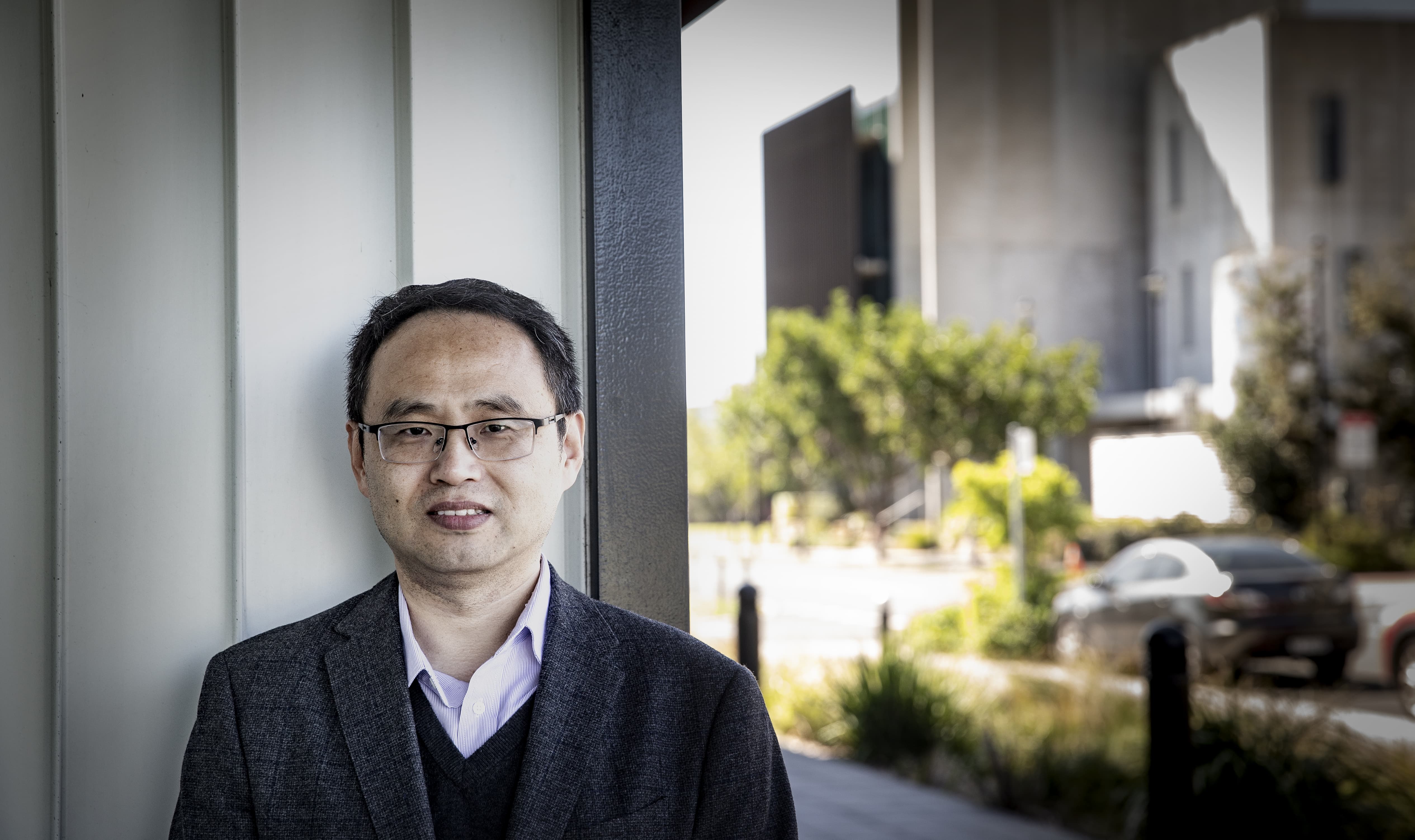Professor Shujun Zhang recognised for exceptional research excellence

University of Wollongong (UOW) researcher Professor Shujun Zhang is the recipient of the NSW Premier's Prize for Excellence in Mathematics, Earth Sciences, Chemistry or Physics, announced today, Wednesday 1 December 2021.
The prestigious NSW Premier's Prizes recognise excellence in science and engineering, and reward leading researchers for cutting-edge work that has generated economic, environmental, health, social or technological benefits for New South Wales.
Professor Zhang is a material scientist at the Institute for Superconducting and Electronic Materials (ISEM) within UOW's Australian Institute for Innovative Materials (AIIM).
His research focuses on electronic ceramic materials and the development of new materials to improve medical technology and the storage and harvesting of green energy.
Professor Zhang's research is producing high performance ferroelectric materials for use in next generation ultrasonic medical imaging and diagnostics. These materials will greatly benefit the health sector and improve outcomes in NSW, as well as for the broader market.
"I am extremely honoured and humbled for being recognised for my work among top researchers in the NSW Premier's Prize," Professor Zhang said.
"In my career, I have had the privilege of working with the most talented, devoted and generous mentors, colleagues, students and collaborators from around the world. They have provided me with great support and inspiration over the past more than 20 years.
"I think the only way for me to return the favor is to work harder to promote my research to directly benefit our society, help provide better materials for health care and more sustainable development.
"It is becoming critically important that the technology used in the health sector becomes sustainable and affordable where the cost of the materials used in those technologies should also be reduced at the same time.
"My research focuses on the development of high performance, low cost ferroelectric materials for energy harvesting and energy storage, in addition to human health monitoring. It will have an enormous potential for use in future green energy systems and the Internet of Things.
"The fundamental understanding of the ferroelectric materials based on microstructures and macro properties will guide the design and fabrication of next generation materials for numerous applications that meet the renewable and sustainable future."
UOW Deputy Vice-Chancellor (Research and Innovation) Professor Jennifer L. Martin AC congratulated Professor Zhang on receiving this prestigious award and commended his research contributions that have delivered benefits to diverse areas.
"I am thrilled to know that Professor Zhang has been recognised in NSW Premier's Prizes," Professor Martin said.
"The entire UOW community is extremely proud of Professor Zhang's research work and his remarkable contributions to making the health sector sustainable and in developing materials to enable a green energy future.
"The outstanding work of Professor Zhang includes development of ferroelectric materials for thermal imaging detection to monitor bushfires on a large scale, a technology that is becoming increasingly important for future climate projections."
The Australian's 2021 Research Magazine named Professor Zhang top researcher in Ceramic engineering.
Professor Zhang's research publications are some of the highly cited publications across the globe. His work has appeared in high profile peer-reviewed journals, including Science, Nature and Nature Materials. He was recently named on the 2021 Clarivate Highly Cited researchers list, recognising his significant contributions to global research.
In addition, Professor Zhang was also recently named a Fellow of the Institute of Electrical and Electronics Engineers (IEEE) for his contributions to the development of advanced piezoelectrics for transducers and energy storage and harvesting applications.
IEEE is a leading authority on a wide variety of areas ranging from aerospace systems, computers and telecommunications to biomedical engineering, electric power and consumer electronics.






